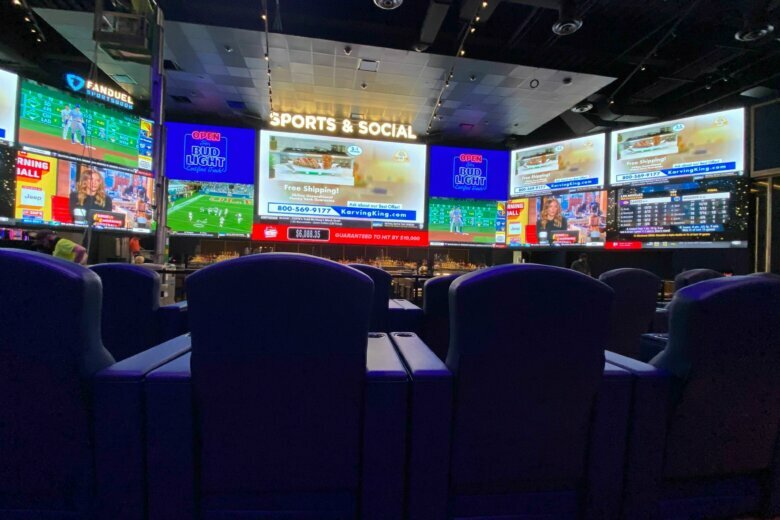
The bill to legalize sports betting that passed both the Maryland House and Senate last month was significantly different from the initial legislation introduced, most notably for how many licenses it ultimately allowed for – 60.
It’s far more than other states allow — except for Tennessee which doesn’t have a limit — and was done that way to give smaller companies a chance to get a piece of what’s expected to be a very large pie.
But that doesn’t mean that if the governor signs the bill into law that smaller companies will get much of a slice of that pie, if any at all.
“It’s impressive to me that lawmakers have set up a situation to try to incentivize inclusivity and diversity into what they’re doing,” said Jessica Welman, an analyst with PlayMaryland.com. “It’s something we haven’t seen before and I really hope that some of these small operators kind of turn into a David and Goliath story that we can come back in a year and talk about how well they’re doing.”
But the odds might be stacked even greater among some of those smaller companies than they were against the biblical character.
“In most sports betting states that have launched, what we’ve seen is there’s this top-tier of Fan Duel (which has a partnership with the Washington Football Team to operate in Virginia already) and Draft Kings, there’s a second tier of Bet MGM and, where it is, Barstool Sports Book in the states it’s in,” Welman said. “Then there’s a series of smaller operators that kind of vary from state to state.”
She says the big problem for the smaller operators in Maryland won’t be whether they can get in the door — though just doing that isn’t likely to be cheap — but whether they can actually have an impact on the betting market.
Welman said Tennessee, which doesn’t cap the number of licenses available, only has seven companies operating and the smaller ones have struggled to keep up with the bigger names.
In Maryland, where casinos and gaming are already up and running, she said that’s where companies might partner up together in order to take on bigger fish.
“There are some incentives in the language of the law to suggest that if Draft Kings and Fan Duel were to partner with a minority-owned business, they would be given consideration to launch in the first wave,” Welman said. “Or … I wonder if for example the Bingo halls kind of work together and pool their resources because running a sports book is expensive. You’re paying your licensing fees, the regulatory fees, and then you’re also having to power a very extravagant piece of technology. It has to pass a certain level of standards by the Maryland Lottery … before it can launch. And what we saw in Tennessee was the local operator was incapable of operating at the proper level and they got in a little hot water.”
Some of the larger companies have also expanded their profile through gambling-oriented content to get their names out there.
“I think it’s really hard with brand recognition,” to breakthrough, Welman said, who said it might help a smaller entity if it were also “an iconic Maryland brand that people already know and associate with the state.”
But she says a philosophy gaining hold among a couple of other operators in other states could also work in Maryland, too.
“It’s hard because the big guys come with big fire power,” Welman said. “There are giant promotional offers for signing up for some of these sports book.”
That makes it hard for regional sports book operators like what the Maryland legislation is meant to encourage to compete.
“If you get a consortium of people together, you could probably brand different ways but be backed on the same sports betting software platform and use your dollars together to offer incentivized promos,” said Welman. But she also points to Colorado where “some of the smaller operators there, they just find a niche and stick with it.”
One sports book over there focuses on e-sports, for example.
“I think if you’re going to try and be a small player in Maryland, maybe coming up with a very Maryland-focused site on Maryland teams or some sort of niche sport popular with people in Maryland is going to be the way to win people over,” she said.









